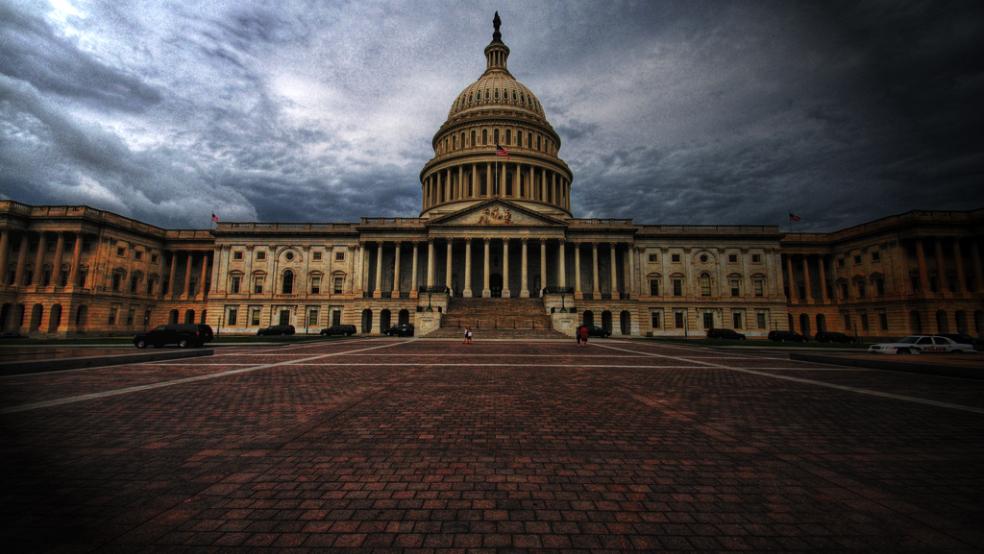The Senate approved a short-term funding bill for the federal government late Wednesday night, averting a potential shutdown at the end of the week while pushing the next funding deadline into early 2024. Initially passed by the House on Tuesday, the bill now goes to the White House, where President Joe Biden is expected to sign it before a midnight deadline Friday.
The bill passed easily in an 87-11 vote, with 10 Republicans and one Democrat voting against it. The lone Democrat holdout, Sen. Michael Bennet of Colorado, said he opposed the bill because it failed to include aid for Ukraine.
As we told you earlier this week, the stopgap bill creates two new deadlines early next year, with some departments receiving funding until January 19 and others until February 2 – effectively creating two new shutdown threats. The bill is also “clean,” meaning it includes no amendments addressing divisive issues such as foreign aid and makes no cuts in spending, and instead extends current spending levels into early 2024.
Although conservatives in the House pushed to include funding cuts and policy provisions in the bill, the fact that the bill avoided those issues was a crucial factor in winning bipartisan support in both chambers of Congress.
Senate Majority Leader Chuck Schumer applauded lawmakers’ willingness to work together and leave aside controversial issues that threatened to derail the effort. “Because of bipartisan cooperation, we are keeping the government open without any poison pills or harmful cuts to vital programs — a great outcome for the American people,” he said. “If the speaker is willing to work with Democrats and resist the siren song of the hard right in the House,” he added, “then we can avoid shutdowns in the future and finish the work of funding the government.”
The clock is ticking: The stopgap bill removes the immediate threat of a shutdown and provides the promise of an unusually quiet holiday break for Congress, but it also kicks the funding can down a road that is both short and bumpy. While early January may seem reasonably far away, the holiday pileup at the end of the year means there are precious few legislative days left before the new deadlines arrive, leaving little time to deal with a whole host of serious issues.
Perhaps the most pressing issue will be avoiding a partial shutdown in mid-January, and another in early February. Lawmakers will have to either reach their goal of passing full-year funding bills through both the House and Senate or come up with another stopgap bill – with the latter option already being discounted by House Speaker Mike Johnson. Either path offers a whole host of potential obstacles, and even if the House can manage to pass all 12 of its annual spending bills in the coming weeks, they will likely run into opposition in the Senate, requiring long and difficult negotiations to hammer into acceptable form.
Meanwhile, lawmakers must deal with legislation addressing aid for Ukraine, Israel and Taiwan, as well as funding requests for disaster relief, child-care providers and border enhancements – all of which will be difficult to resolve on their own, and even more so if they become entangled in legislative horse- trading.
Divisions may be growing: While conservatives in the House gave Johnson leeway to successfully negotiate a bipartisan deal that avoided a government shutdown, they again revolted after seeing the result. In the last two weeks, Republicans have been unable to pass multiple spending bills due to internal disputes over spending levels and policy provisions, with the hardliners saying they are no longer willing to play along with demands for compromise – hardly a promising development ahead of the new deadlines.
“We’ve had enough,” Rep. Scott Perry of Pennsylvania, the chairman of the far-right Freedom Caucus, said after helping to derail a funding bill on Wednesday. “We want to see good, righteous policy, but we’re not going to be part of the failure theater anymore.”
On the House floor Wednesday, Rep. Chip Roy of Texas, a member of the House Freedom Caucus, excoriated his fellow Republicans for their failure to win conservative victories and called on them to pass bills that slash spending and reduce the size of government, among other objectives. “When are we going to do what we said we would do?" he said.
At the same time, more moderate Republicans in the House are pushing back against conservatives’ calls for potentially divisive spending cuts. Rep. Nick LaLota of New York, a member of the centrist Problem Solvers Caucus, voted against a bill this week in protest of what he saw as excessive reductions in spending. “My ‘no’ vote on the underlying rule was a message to my party’s leadership to stop wasting members’ time with doomed bills and start concocting more reasonable ones which can pass the House,” he told The Hill.
The bottom line: Lawmakers successfully postponed a shutdown threat with this week’s bipartisan funding bill, but growing rifts within the GOP-controlled House – and serious disagreements throughout Congress about difficult issues like aid to Ukraine and border policy – may make it difficult to repeat that performance in early 2024.




